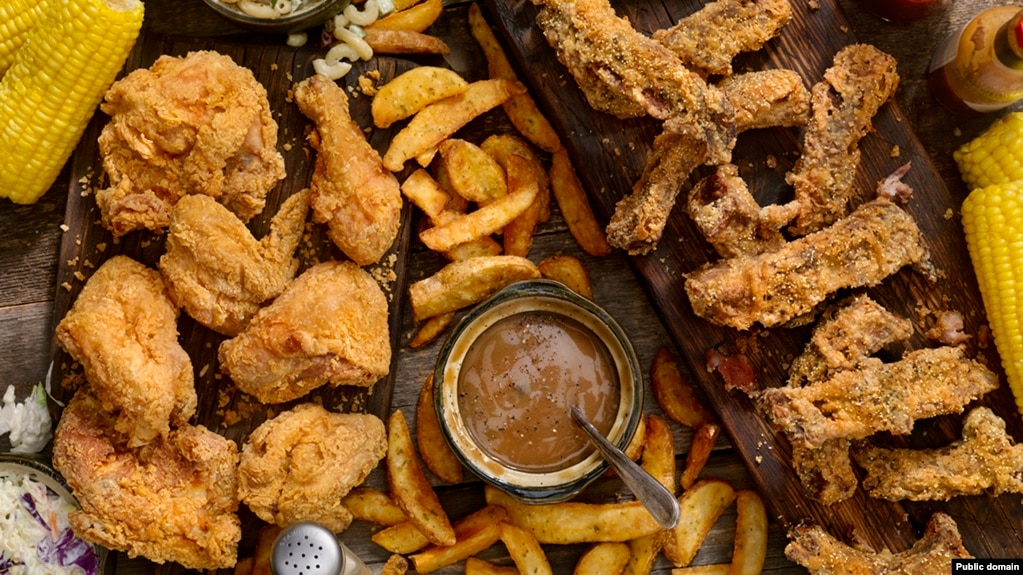Did you hear about the town that was fattening the curve so much that the mayor had to take away everyone’s quarantinis?
Until recently, those words would not have made sense. But now, many people can probably relate to them on some level.
The coronavirus crisis has changed the way we behave — and speak — adding a number of new words and expressions to our language. Some words are serious, like pandemic and quarantine. But others are much, much less serious.
In these trying times, we have the chance to laugh — not at our struggles, but at how we think and act as a result.
So today, we explore words that have been born in the time of coronavirus and the social distancing we have — or have not — been doing.
Don’t stand so close
Let’s start with a word we hoped we would never need: covidiot.
Some of us probably know at least one covidiot, a person who ignores health and social distancing rules for preventing the spread of the virus. The word “covidiot” combines COVID-19 and idiot, which is a stupid or foolish person. It is meant as an insult.
Moronavirus has a similar meaning to covidiot. It combines the word “coronavirus” with the word “moron,” another insulting word.
Help fatten the curve
Now let’s talk about people who are following the rules: washing hands often, wearing a facial covering, keeping a safe distance from others and staying home as much as they can.
Those people may be safer from the virus, but there is one thing they are not safe from: the refrigerator.
For many, being at home might mean eating more and getting less physical exercise. In a crisis situation, people often choose foods that help them feel at ease. But those foods are not always the healthiest.
This situation can lead to the COVID-10, COVID-15 or Quarantine 15. All three words describe the weight in pounds that some people are gaining from eating too much during quarantine.
Another expression for this weight gain is “fattening the curve.” For example: “Oh no. I’ve gained six pounds since the middle of March. I’m fattening the curve!”
“Fattening the curve” sounds like “flattening the curve.” These words mean taking steps to slow the spread of disease to ease the pressure on hospitals and health workers.
Shake it like a quarantini
While some people’s COVID-10 may be the result of heavy eating, other people may have had one too many quarantinis.
A quarantini is an alcoholic drink made at home with whatever alcohol and ingredients one has around.
Quarantini is a play on the words “quarantine” and “martini,” which is a very strong alcoholic drink.
Other people may want a coronita, another kind of mixed drink. “Coronita” borrows words from two alcoholic drinks: margaritas and a Mexican beer.
If the pandemic has caused some people to temporarily lose their jobs, however, they might want a furlough merlot instead. That is wine for someone who is worried about not working.
Though losing work is not a laughing matter, funny words - and wine - might help bring smiles to people’s faces.
Let's have a coronababy!
Another thing that might put a smile on someone’s face is a baby, and coronababies are the most special of all! They are the babies who are conceived or born during long periods at home because of stay-at-home orders.
Another word that the quarantine has produced sounds like “quarantine” but ends with the letters e-e-n instead. Some people are calling teenagers “quaranteens.” On a normal day, teenagers can be, well, trying. But during a quarantine, they can become easily bored or restless. They are quaranteens, a play on words between “teenager" and “quarantine."
Well, that’s all for now. Join us again soon to learn more terms that might help make light of a heavy situation.
I’m Alice Bryant.
Alice Bryant wrote this story for Learning English. Mario Ritter, Jr. was the editor.
________________________________________________________________
Words in This Story
curve –n. a smooth, rounded line, shape or path
relate –v. to understand and like or have sympathy for someone or something
refrigerator –n. a device or room that is used to keep things food and drinks cold
pound –n. a unit of weight that is equal to 16 ounces or 0.4536 kilograms
ingredient –n. one of the things that are used to make a food, drink or product
conceive –v. to become pregnant
teenagers –n. someone who is between the ages of 13 and 19 years old
bored –v. feeling tired or annoyed by being uninteresting or too much the same
Other words related to the coronavirus pandemic



































































